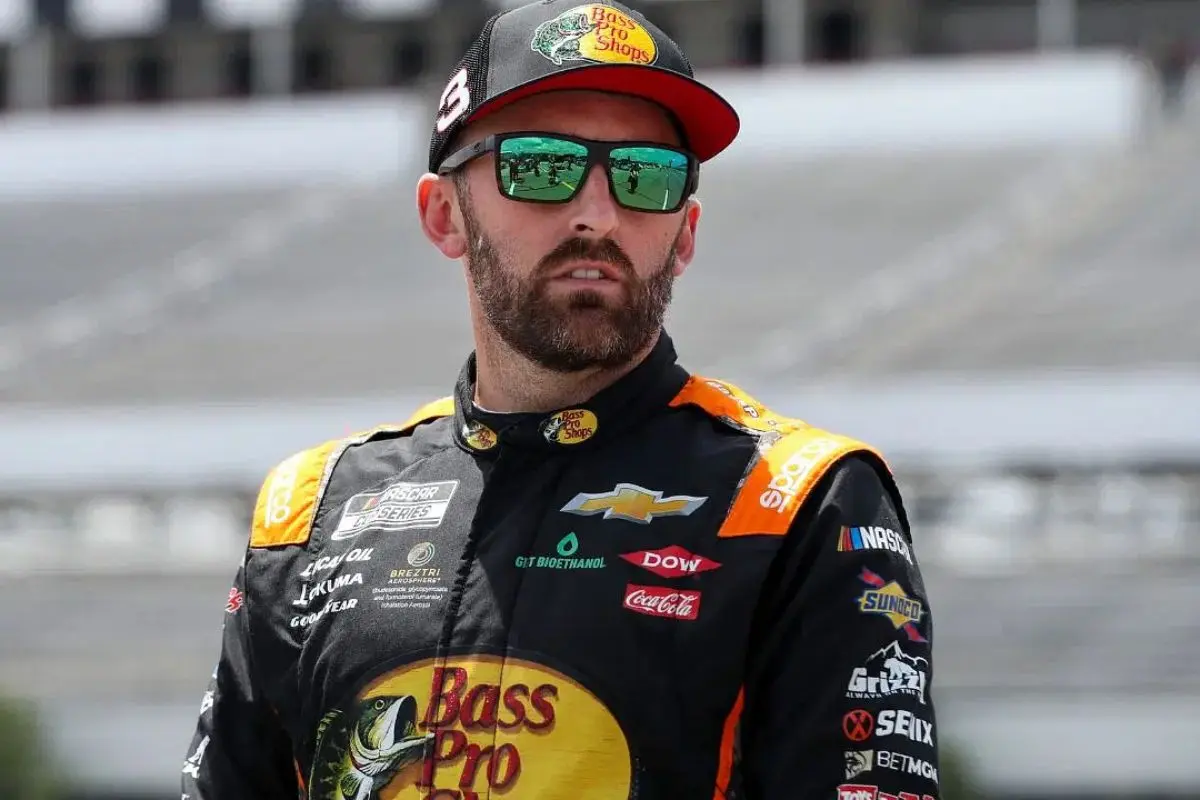Austin Dillon‘s 2025 Richmond victory has ignited fierce backlash among fans, stemming from deep-rooted skepticism about his privilege and racing tactics. While his crew chief and Richard Childress praised his matured approach, many fans remain unwilling to shift their long-held views on Dillon’s abilities. Criticism surrounding nepotism and past controversies clouds perceptions of his achievements. This win may be historic, but doubts persist about his authenticity and merit as a competitor. The discourse raises more questions about Dillon’s legacy.
Key Highlights
- Fans remain skeptical of Austin Dillon’s abilities despite his 2025 Richmond victory, adhering to long-held negative views.
- Criticism centers on Dillon’s perceived privilege as Richard Childress’s grandson, fueling resentment among fans.
- Past controversies, including illegal penalties and allegations of race manipulation, taint Dillon’s recent success.
- Sporadic victories fail to shift entrenched beliefs about Dillon’s racing legacy and consistency.
- The contrast between Dillon’s blue-collar persona and perceptions of entitlement contributes to ongoing distrust among fans.
Dillon’s Richmond 2025 win and history
Austin Dillon’s victory at Richmond in 2025 not only displayed his talent as a driver but also marked a significant moment in NASCAR history. His Richmond performance, characterized by leading 107 laps and finishing ahead of Alex Bowman by 2.471 seconds, highlighted his evolution from aggressive contender to a more mature racer. This win held historical significance as he became the initial driver in 35 years to repeat at this event since Dale Earnhardt, drawing inevitable comparisons.
Such achievements strengthen Dillon’s racing legacy, as he joins the ranks of Richard Childress Racing’s elite. However, this success also carries playoff implications, stirring debate over whether his prior controversial tactics will overshadow his newfound skill, thereby igniting discord among fans and analysts similarly.

Crew chief and Childress praise, contrasting 2024 vs. 2025
The accolades from crew chief Richard Boswell and team owner Richard Childress following Dillon’s 2025 Richmond victory highlight a notable shift in perception regarding his racing capabilities. Boswell’s praise emphasized Dillon’s tactical racing, particularly in his side-by-side battle with Ryan Blaney, which illustrated his ability to compete at the highest level.
Childress reflected this sentiment, framing Dillon’s win as an emotional victory and a form of redemption compared to his controversial 2024 success, which involved aggressive tactics that ultimately led to penalties. This contrasting style—Dillon’s calm execution in 2025 versus the reckless abandon of 2024—reveals a maturation in his approach, raising questions about the balance between aggression and planning in NASCAR’s evolving landscape.
Fan reaction and perception
While Dillon’s 2025 Richmond victory exhibited his strongest performance to date, fan reactions indicate a reluctance to revise long-held perceptions of his racing abilities. Despite the victory’s importance, fans remain skeptical, suggesting that a singular win cannot redefine his racing legacy. Key points contributing to this sentiment include:
- Fan Loyalty: Many fans remain attached to their longstanding views of Dillon.
- Driver Consistency: His sporadic victories do not reflect steady performance.
- Perception Change: A singular impressive win fails to alter entrenched beliefs.
- Racing Legacy: Dillon’s history of opportunistic wins overshadows his recent success.
This backlash highlights the complexity of reshaping fan perceptions amidst years of inconsistent performance, revealing a noteworthy barrier to lasting admiration.

Fans highlight privilege and past controversies
Privilege and controversy often intertwine in the narratives surrounding Austin Dillon, revealing a complex landscape of fan sentiment. His recent victory reignited fan resentment, largely fueled by a privilege perception that places his success under scrutiny. Many view his racing career through the lens of nepotism, criticizing the legacy he inherited as the grandson of Richard Childress. Coupled with past controversies, such as the illegal underwing penalties and allegations of race manipulation, Dillon’s reputation remains fraught.
Fans often question the authenticity of his achievements, contrasting them against the ideals of racing meritocracy. Ultimately, this ongoing critique reflects a deep-seated discontent with what some perceive as a privileged ascent, overshadowing his potential for genuine accomplishment in the sport.
The lasting image of Dillon
Austin Dillon’s image in the NASCAR community is a complex fabric woven from threads of privilege, performance, and public perception. While Dillon projects a blue-collar persona, many fans perceive a contrasting narrative rooted in entitlement. This discord shapes his legacy impact. Key elements include:
Austin Dillon’s NASCAR image intertwines privilege and performance, sparking debates on entitlement and legacy within the racing community.
- Racing Authenticity: Fans question Dillon’s genuine commitment to the sport.
- Legacy Impact: His surname opens doors that others can’t access.
- Fan Loyalty: Distrust lingers despite his recent successes; one race cannot amend history.
- Competitive Integrity: Skepticism remains regarding his merit in a sport deeply tied to meritocracy.
Dillon’s mixed reception highlights a broader discussion about privilege in racing, challenging the essence of competitive integrity and fan loyalty.

News In Brief: Austin Dillon’s Richmond Victory Sparks Backlash No Fan Respect
Austin Dillon’s victory at Richmond in 2025 ignited a firestorm of criticism, revealing a rift between his supporters and detractors. While his crew chief and team owner, Richard Childress, celebrated the win, fans were quick to emphasize Dillon’s perceived privilege and past controversies, casting shadows over his achievement. This backlash not only highlights the complexities of fan loyalty in motorsport but also raises questions about the long-term impact of reputation in a fiercely competitive arena.
ALSO READ: NASCAR Fans Applaud Richmond Racing but Question Austin Dillon’s Win
